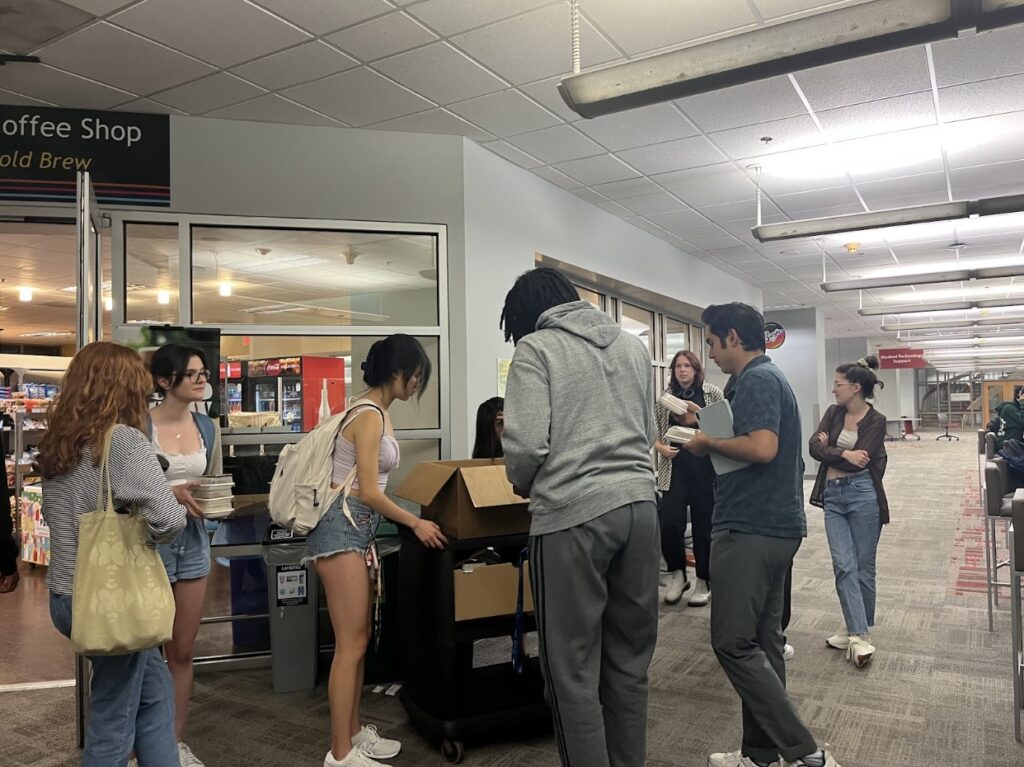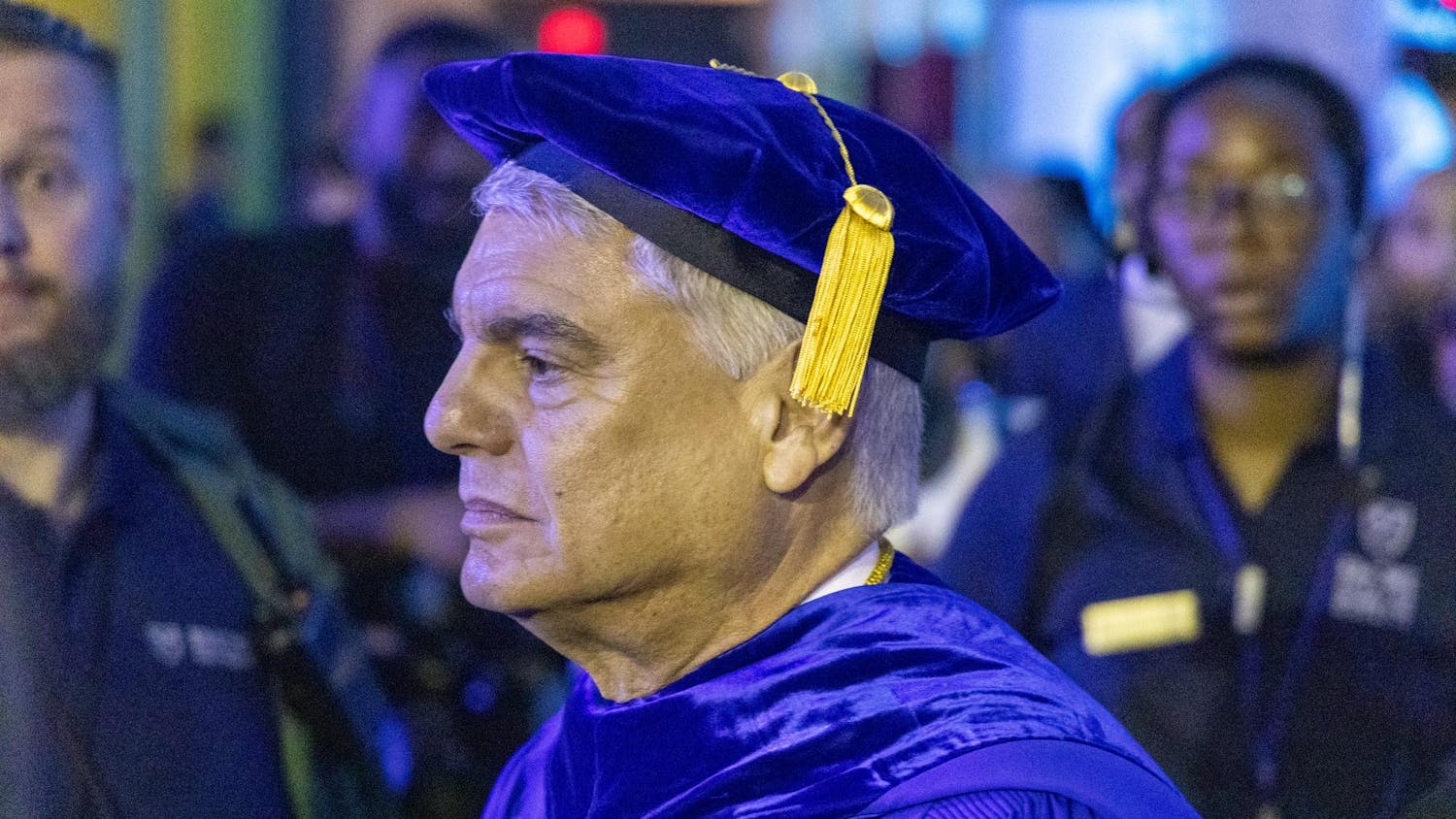 (Sydney Song/Contributing Writer)
(Sydney Song/Contributing Writer)
Hungry students lined up on the first floor of Robert W. Woodruff Library at 9:45 p.m. in hopes of grabbing a free Dobbs Common Table (DCT) meal to fuel them through their midterm study sessions. Curious onlookers also joined the small crowd, needing both a small break from their textbooks and a taste of this new event.
Slow Food Emory, a chapter of the national Slow Food Movement, aims to advocate for “good, clean, and fair” food for Emory students. The club hosted their first surplus food initiative event on Sept. 27, and they will continue this event on every Wednesday this semester from 9:45-11 p.m. on the first floor of Woodruff Library. Slow Food Emory’s collaboration with the dining hall, allows Emory students to grab free DCT meals that would have gone to waste otherwise.
One of Slow Food Emory’s key initiatives is weekly visits to different local farmers markets, where club members collect surplus ingredients to cook healthy meals for cancer patients at Emory hospitals.
Slow Food Emory President Sabrina Li (25C) said that the DCT surplus food initiative has been in the works for months.
“There’s food waste every day,” Li said. “The DCT workers, we’ve talked to them, and they say they have to throw away gallons of soups and various foods, so we wanted a way to address that.”
To bring this goal to life, Slow Food Emory worked alongside DCT staff, making sure to follow food safety regulations. Each container of food has a sticker with an expiration date for students to follow.
One challenge Slow Food Emory faced when starting the initiative was sourcing compostable containers. In response, Li said she emailed many big compostable container companies to make sure the containers Slow Food Emory uses are good for the environment.
Finally, Eco-Products, a compostable and recyclable foodservice packaging company, responded to Li’s email and donated around 2,000 containers for the surplus food initiative. Li also felt the community support for Slow Food Emory. Community members donated containers to support the DCT surplus food events as well.
Divine Taniform (27C) was one of the first students to grab a meal. He chose a container of pasta with marinara and alfredo sauce. Other meal options included curry over rice, sausage, vegetables and pasta.
“I feel like the flavors just blend well together,” Taniform said after taking a bite. “The texture of the sauce sits well on my tongue. The pasta is not overcooked, cooked just right in my opinion. I would recommend this to one of my best friends.”
Earlier in the evening, student volunteers from Slow Food Emory went to the DCT to help pack the meals before bringing the surplus food to the library. Slow Food Emory volunteers enthusiastically encouraged students to take multiple containers of food.
Taniform did not take their friendliness for granted, rating Slow Food Emory’s customer service a “10 out of 10.”
Marcus Davis (27C), another fan of this new initiative, also tried the marinara pasta.
“Why would you let food go to waste on a campus where students would love to eat it?” Davis questioned.
Both Taniform and Davis mentioned that the free food motivated them to be more productive and stay focused while studying late at night.
“When I get food, I get energy,” Taniform said. “More energy means I can do more work.”
Looking forward, Slow Food Emory has a bigger vision for DCT surplus food: a collaboration with the Bread Coffehouse’s Eagle Food Pantry.
“They reached out about wanting to partner so that the food can be stored in their fridge and then distributed over a longer time,” Li said.
Additionally, Li said that she expects Slow Food Emory to reach off campus, perhaps expanding to serve homeless populations in Atlanta.
Li reflected on her initial motivation to join Slow Food Emory.
“I was always really interested in nutrition, and food is really important to me, like having a good relationship with food,” Li said. “I knew that I wanted to do something meaningful.”






